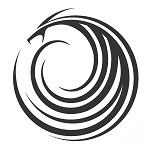Flashback time…
I have a confession to make. When I was a kid I didn’t want to be a metrologist. Actually, that might be an overly strong statement. I don’t think I knew what a metrologist was – and I suspect I was in the majority on that front. I wanted to be a rally driver.
But here’s the thing. Once I got into my teenage years and became more aware that I wanted to do something vaguely technical when I grew up, I doubt that I still would have wanted to work in metrology. Even if I knew what it was.

There’s a reason for this: Metrology sounds (let’s be honest), pretty dry and complicated if you try and explain it to someone outside of the industry. In fact, just the other night a friend was telling me how she was trying to explain what I did to another friend. “He works in metrology, I don’t know what it means,” she said.
Consequently, they turned to the internet to get an understanding. “We saw a load of square brackets and formulae and stuff and decided it was too complicated to find out more.”
I can imagine the same glazed expression occurring if I told teenage me what had happened to my career. On the surface, the dryness of any technical subject can be off-putting, especially if you can’t put any real-world value to the discipline.
Now as adult John, I love my job, and I’ve loved all the years I’ve spent working in this sector. Would I change it to something else if I could turn back the clock? Not a chance!
So how do we change this?
We need to continue to bring young engineers into our community. And when we do, we need them to be excited and passionate. To want to learn, to excel and to innovate.
This got me thinking. What would I say to young me to convince me to want a career in metrology? I spent some time thinking about the things I’ve experienced in my career that would be alluring to me as a young engineer. This was the rough list I came up with:
- You get to come up with inventive solutions to problems
- Being at the forefront of engineering
- An in-demand skill means an opportunity to travel the world for your work, if that’s something you enjoy
- Finally, this is a big one for me – the chance to work on some really interesting and pioneering projects. Over the course I’ve my career so far, I’ve been proud to work on a huge range of really cool projects, including:
- The Forth Rail Bridge
- The F35 Lightning II
- The biggest commercial airliner in the world, the Airbus A380
- EFDA-JET, the world’s largest operating nuclear fusion experiment
- Some truly stunning automobiles, including the Aston Martin DB9, the Jaguar F-Type and even the Tata Nano, which was at the time the world’s cheapest mass production car

Without metrology, it’s just not possible
Each time I’ve worked on one of these new projects, not only have I been really impressed with the ambition and vision of those involved, but I’ve also felt privileged in making a small contribution. We are all but small cogs in a big machine, but it is nice to know that our own particular cog is turning well!
Metrology can often be overlooked or seen as something that just “is” withing the engineering community. It is not unusual for measurements to be viewed as absolute, or for the correct process to not even be considered, let alone followed.
“Well, the Vernier calliper says 1/8 so that’s what it is” is typical of the kind of comment so many of us must have heard at various times. Metrology is understandably not always a central concern in complex projects (even if it should be), as I have written previously.
Any fool can know, the point is to understand
A big way for us to change that is to really try to engage students in understanding the basic principles of metrology. That will create a starting point that may hopefully lead some toward more detailed (and perhaps formalised) training such as the Foundation Degree in Metrology that is now offered by Coventry University in the UK. And the more student engineers are engaged, the more readily available formal training becomes. Supply and demand, after all.
Do you have any ideas about how we engage students in metrology more? If so, let me know – I’d love to hear them!
John Kane is President of Wyvern. You can view his LinkedIn profile here.
